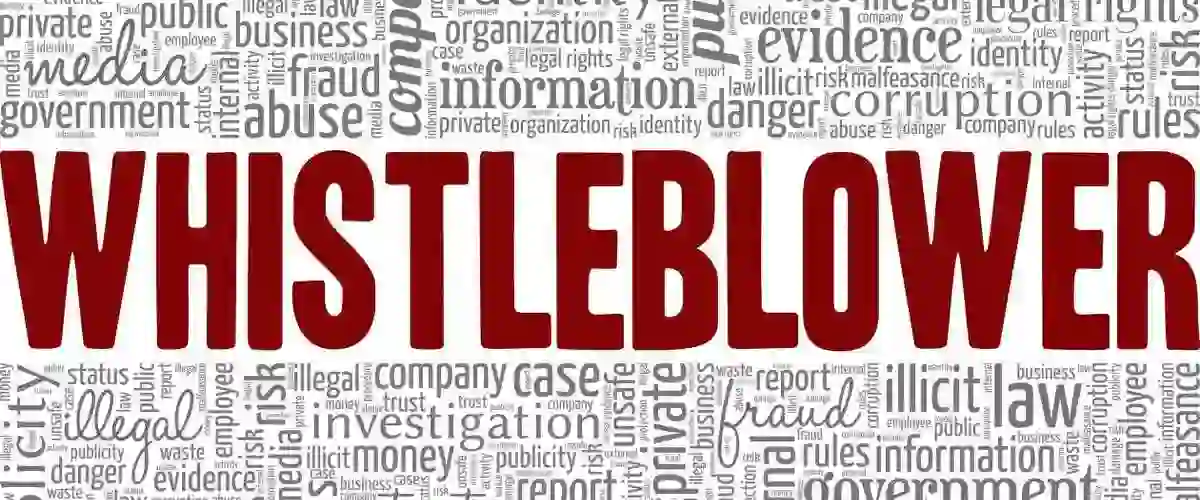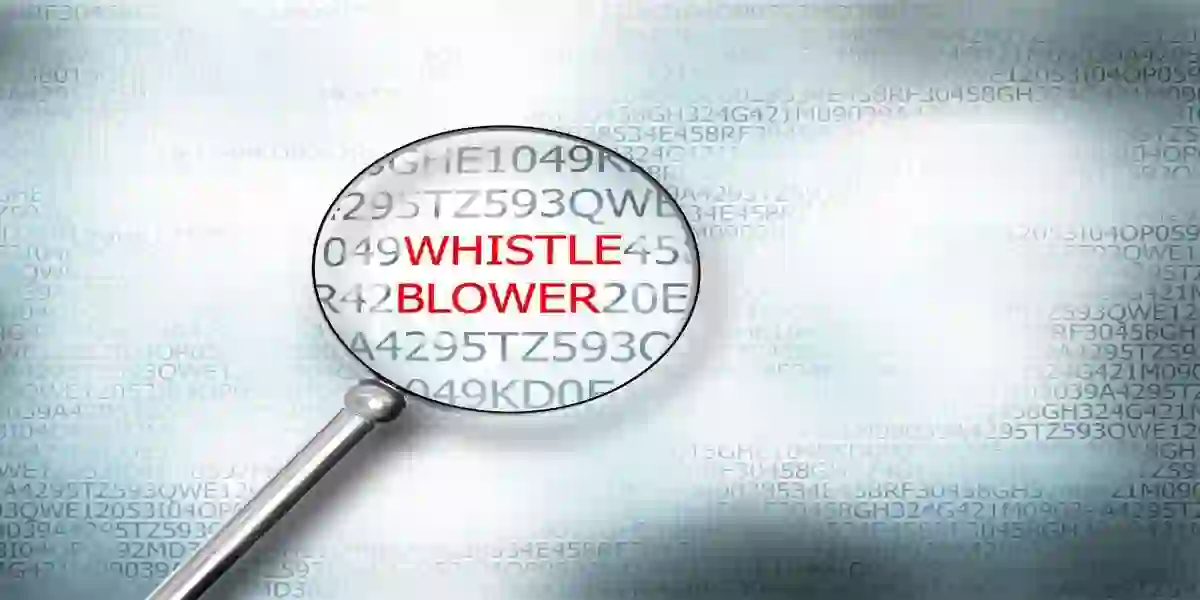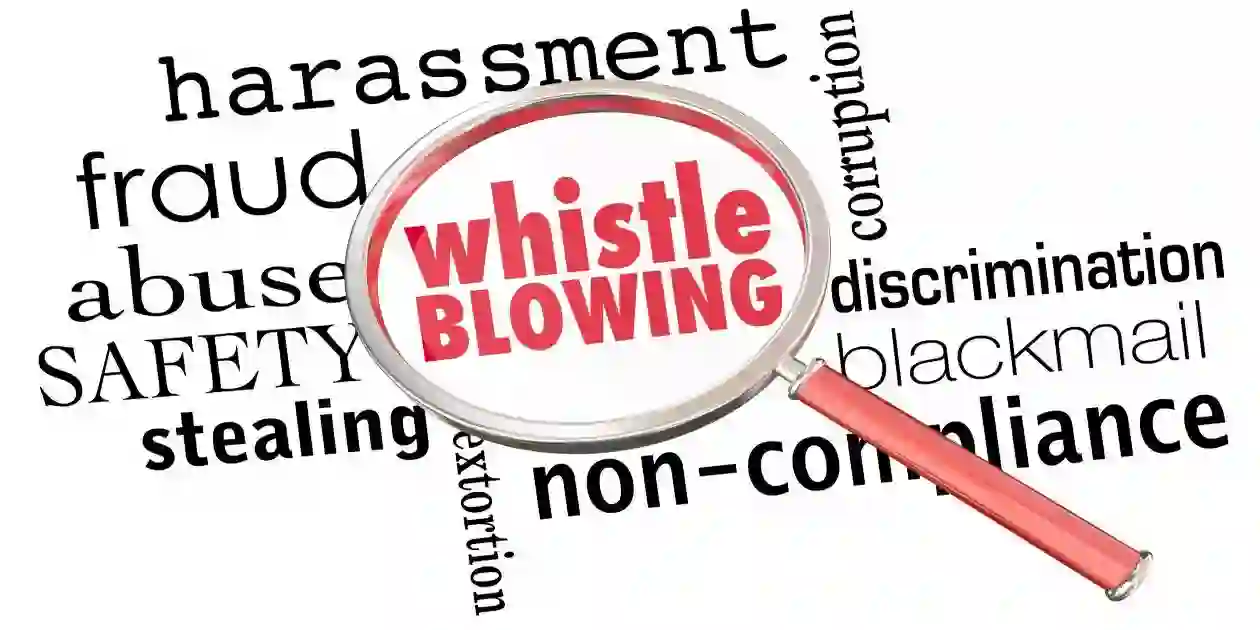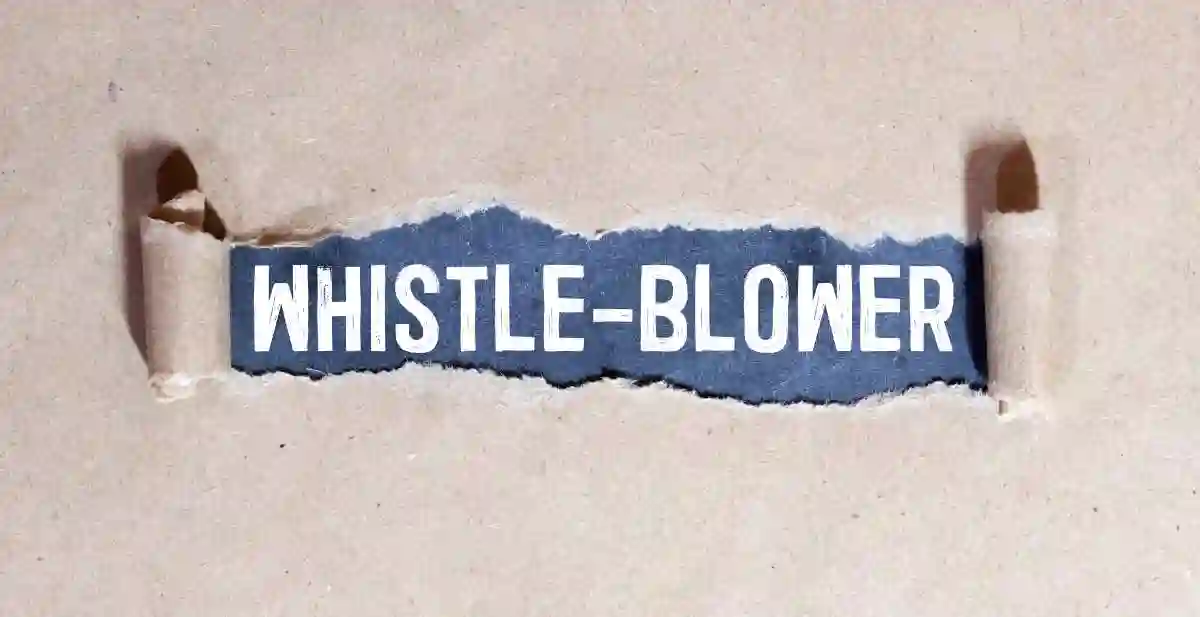Understanding Whistleblower Laws: An Overview
Nashville Whistleblower Attorney
- Engaging a knowledgeable Nashville whistleblower attorney is an indispensable step for anyone contemplating blowing the whistle on misconduct.
Whistleblower Laws
- Are a pivotal component of the legal framework in the United States, designed to protect individuals who expose illicit or unethical activities within organizations.
- These laws encourage transparency and accountability by safeguarding employees from retaliation when they report misconduct.
Whistleblower Protection Act
- The foundation of whistleblower legislation is built on the principle that individuals should not suffer adverse consequences for doing the right thing.
- From federal statutes like the Whistleblower Protection Act to state-specific regulations, these laws form a crucial safety net for those who dare to speak out against wrongdoings.
Whistleblower Protections
- The legal landscape of whistleblower protections has evolved significantly over the years.
- Initially, the focus was predominantly on federal employees, but today, the scope has expanded to encompass various sectors, including healthcare, finance, and environmental protection.
The False Claims Act
- Empowers individuals to sue on behalf of the government in cases of fraud, and successful litigants can receive a portion of the recovered damages. This act and others like it underscore the importance of whistleblowers in maintaining integrity and accountability within institutions.
Challenges for Whistleblowers
- Despite the existence of these laws, the path for whistleblowers is fraught with challenges. Understanding the nuances of whistleblower legislation is critical for anyone considering this courageous step.
- Laws vary by jurisdiction, and protections may differ based on the nature of the wrongdoing and the specific industry involved.
Complex Legal Landscape
- As such, navigating these complex legal waters requires careful consideration and, often, expert legal counsel to ensure that one’s rights are fully protected and that the whistleblower can pursue their case effectively.
The Importance of Hiring a Nashville Whistleblower Attorney
Nashville Whistleblower Attorney
- Engaging a knowledgeable Nashville whistleblower attorney is an indispensable step for anyone contemplating blowing the whistle on misconduct.
- A seasoned attorney can provide invaluable guidance through the intricate maze of legal requirements and procedures associated with whistleblower cases.
Explain the Process
- They possess the experience to assess the validity of a claim, gather necessary evidence, and develop a robust strategy to protect the whistleblower’s interests including your whistleblower Protections.
Principle Role
- One of the primary roles of a whistleblower attorney is to ensure that the client is fully aware of their rights and the protections afforded to them under the law.
- This includes safeguarding the whistleblower from retaliation, which can manifest in various forms such as demotion, termination, or harassment.
- An attorney can provide the legal support needed to counteract such retaliation, ensuring that the whistleblower’s professional and personal life is not unduly disrupted.
Experience
- Moreover, an attorney’s experience in handling whistleblower cases can significantly enhance the likelihood of a successful outcome.
- They are well-versed in the nuances of local and federal laws, and can adeptly navigate the legal system to maximize the potential for a favorable resolution.
- By hiring a Nashville whistleblower attorney, individuals can approach their case with confidence, knowing that they have a committed advocate in their corner, dedicated to upholding justice and integrity.

Whistleblower Lawsuit: What You Need to Know
Whistleblower Lawsuit
- A Whistleblower lawsuit can arise from a multitude of scenarios, each with its own set of legal considerations and implications. One of the most common types is the qui tam lawsuit, filed under the False Claims Act.
- This type of lawsuit allows private citizens to sue on behalf of the government if they have knowledge of fraud against federal programs.
- Successful qui tam plaintiffs, also known as relators, can receive a substantial portion of the recovered funds as a reward for their courage and contribution.
Occupational Safety and Health Act (OSHA)
- Another prevalent category of whistleblower lawsuits involves violations of workplace safety and environmental laws. Employees may report unsafe working conditions or environmental hazards that violate regulations such as the Occupational Safety and Health Act (OSHA) or the Clean Air Act. These claims are crucial in promoting public health and safety, and whistleblowers in these cases are often protected under specific statutes designed to prevent retaliation.
Dodd-Frank Act
- Financial and securities fraud is yet another arena where a whistleblower lawsuit play a pivotal role. The Dodd-Frank Wall Street Reform and Consumer Protection Act, for instance, provides significant incentives for individuals to report securities violations to the Securities and Exchange Commission (SEC) without experiencing whistleblower retaliation.
Sarbanes-Oxley Act
- Similarly, the Sarbanes-Oxley Act of 2002 offers whistleblower protections for employees who report fraudulent activities within publicly traded companies. Understanding the type of lawsuit applicable to a given situation is essential for effectively pursuing a whistleblower claim and ensuring that the appropriate legal channels are utilized.
Steps to Take Before Filing a Whistleblower Lawsuit
Document all Evidence
- Before filing a whistleblower lawsuit, individuals should take several important steps to prepare and protect themselves. First, it is crucial to thoroughly document all relevant information and evidence related to the misconduct. This may include emails, memos, reports, and any other documentation that supports the claims of wrongdoing.
- Detailed records can strengthen the whistleblower’s case and provide a clear account of the events that transpired.
Consult with a Nashville Whistleblower Attorney
- Next, potential whistleblowers should familiarize themselves with the applicable laws and protections that may apply to their situation.
- Consulting with a Nashville Whistleblower Attorney who practices in whistleblower cases can provide valuable guidance and help the individual understand their rights and obligations.
- An attorney can also assist in evaluating the strength of the case and advising on the best course of action.
Consider Risk and Consequences of a Whistleblower Lawsuit
- Additionally, it is important for whistleblowers to consider the potential risks and consequences of filing a lawsuit. This includes the possibility of retaliation, the impact on personal and professional relationships, and the emotional toll of the legal process.
- By carefully weighing these factors and seeking support from trusted advisors, whistleblowers can make informed decisions and prepare themselves for the challenges ahead. Taking these preliminary steps can increase the likelihood of a successful outcome and ensure that the whistleblower is well-prepared to navigate the complexities of the legal system.
How to File a Whistleblower Lawsuit
Filing a Whistleblower Lawsuit
- Filing a whistleblower complaint is a critical step in bringing attention to misconduct and holding wrongdoers accountable.
- The process often begins with the whistleblower submitting a formal complaint to the appropriate authority or regulatory agency.
- This may involve completing a detailed complaint form and providing evidence to support the allegations.
- It is important for the whistleblower to follow the specific procedures outlined by the agency, as failing to do so can result in delays or dismissal of the complaint.
Agency Review
- Once the whistleblower complaint is filed, the agency will review the information and determine whether there is sufficient evidence to warrant an investigation.
- If an investigation is initiated, the agency will typically gather additional information, interview witnesses, and assess the validity of the claims.
- Throughout this process, the whistleblower may be asked to provide further documentation or testimony to support their case.
- It is important for the whistleblower to cooperate fully with the investigation and maintain open communication with the agency.
Agency Declines to Intervene
- In some cases, the agency may decide not to pursue the complaint, either due to lack of evidence or other factors. If this occurs, the whistleblower may have the option to file a lawsuit in a court of law.
- This can involve working with an attorney to draft a legal complaint and navigate the judicial process.
- Regardless of the outcome, filing a whistleblower complaint is an important step in highlighting misconduct and promoting accountability.
- By following the appropriate procedures and providing thorough documentation, whistleblowers can increase the likelihood of a successful resolution.
What to Expect During a Whistleblower Lawsuit
A Whistleblower lawsuit Is Complex and Lengthy
- Whistleblower lawsuits can be complex and lengthy, requiring patience and perseverance from those involved.
- Understanding what to expect during the process can help whistleblowers prepare for the challenges ahead and remain committed to their pursuit of justice.
- While each case is unique, there are several common stages that whistleblower lawsuits typically go through.
Initial Stages
- The initial stage involves filing the complaint with the appropriate court or agency.
- This step marks the formal beginning of the lawsuit and outlines the allegations against the defendant.
- The complaint must be carefully drafted to include all relevant details and comply with legal requirements.
- Once filed, the defendant is notified of the lawsuit and given an opportunity to respond.
Discovery Process
- Throughout the lawsuit, both parties engage in the discovery process, which involves exchanging evidence and information related to the case.
- This stage can be time-consuming, as it requires thorough investigation and analysis of the evidence.
- Depositions, interrogatories, and document requests are common methods used during discovery to gather information and build the case.
- The outcome of this stage can significantly influence the direction and outcome of the lawsuit.

Potential Whistleblower Award and Compensation for Whistleblowers
Whistleblowers Award
- Whistleblowers who successfully pursue their claims may be entitled to significant awards and compensation.
- These financial incentives are designed to encourage individuals to come forward with information about misconduct, recognizing the risks and sacrifices involved in doing so.
- The type and amount of compensation available vary depending on the laws applicable to the case and the specific circumstances involved.
False Claims Act
- Under the False Claims Act, whistleblowers can receive a portion of the funds recovered by the government in cases of fraud against federal programs.
- This “qui tam” provision allows whistleblowers to file lawsuits on behalf of the government and share in any financial recovery.
- The percentage awarded to the whistleblower typically ranges from 15% to 30% of the recovered amount, depending on the level of involvement and contribution to the case.
Other Forms of Compensation
- In addition to financial awards, whistleblowers may be entitled to other forms of compensation, such as reinstatement to their previous position, back pay, and compensation for any damages suffered as a result of retaliation.
- These remedies are intended to make the whistleblower whole and discourage future retaliatory actions by employers.
- By providing these incentives and protections, whistleblower laws aim to empower individuals to take action against wrongdoing and contribute to a more ethical and accountable society.
Resources for Whistleblowers in Nashville
Call a Nashville Whistleblower Attorney
- For those considering blowing the whistle in Nashville, there are several resources available to provide support and guidance.
- These resources can help potential whistleblowers understand their rights, navigate the legal process, and connect with experienced attorneys who specialize in whistleblower cases. Accessing these resources can be invaluable for anyone contemplating taking action against workplace misconduct.
- If you think you have a whistleblower lawsuit, contact Nashville Whistleblower Attorney Timothy L. Miles today for a free case evaluation. 855-846-6529 or [email protected].
- What is protected: No employee can be fired, demoted, or otherwise retaliated against for either refusing to participate in illegal activities or refusing to remain silent about illegal activities they have witnessed.
- What constitutes illegal activities: This includes activities that violate a state or federal criminal or civil code, or any regulation intended to protect public health, safety, or welfare.
- Who is covered: This protection applies to all employees in Tennessee, regardless of the size of the employer.
- What you can do: You can file a lawsuit for retaliatory discharge if you are terminated in violation of this statute.
- Remedies: If you win a case, you may be able to recover back pay, benefits, and attorney’s fees.
- What is protected: These laws allow individuals, or “qui tam plaintiffs,” to file lawsuits against those who commit fraud against the state.
- Examples of fraud: This includes knowingly submitting false claims to the state or its Medicaid program, misusing state property, or deceptively avoiding payment obligations to the state.
- What you can get: If the government intervenes in the case, the whistleblower can receive between 25% and 33% of the money recovered.
- Limitations: You cannot file a lawsuit based on information that is already public, unless you were the original source of that information.
- Legal help: It is highly recommended to consult with an employment lawyer to navigate these laws and protect your rights.
- Statute of limitations: Be aware of time limits, as some claims, such as those related to the Public Protection Act, have a 180-day statute of limitations.
- Additionally, organizations such as the National Whistleblower Center and the Government Accountability Project offer resources and support for whistleblowers nationwide.
- These organizations provide educational materials, legal referrals, and advocacy services to help whistleblowers pursue their claims and protect their rights.
- By leveraging these resources, whistleblowers in Nashville can access the support they need to navigate the complexities of the legal system and achieve a successful outcome.
Conclusion: Empowering Whistleblowers for Justice
Whistleblowers Contribute to a More Ethical and Accountable Society
- Whistleblowers play a crucial role in promoting transparency, accountability, and justice within organizations. By coming forward with information about misconduct, they contribute to a more ethical and accountable society.
- However, the path for whistleblowers can be challenging, requiring courage, determination, and a thorough understanding of the legal landscape.
Whistleblower Protections.
- This guide has provided an overview of whistleblower laws, the importance of protections, common types of claims, and the whistleblower retaliation process.
- It has also offered guidance on choosing the right attorney, preparing for a lawsuit, and understanding potential awards and compensation and whistleblower protections.
- With the right support and resources, whistleblowers can navigate the complexities of the legal system and achieving meaningful change.
Empowering Whistleblowers
- Ultimately, empowering whistleblowers for justice requires a commitment to upholding their rights and ensuring that they are protected from retaliation.
- By fostering a culture of transparency and accountability, we can create an environment where individuals feel safe to speak out against wrongdoing and contribute to a fairer and more just society.
- Whether you are a potential whistleblower or simply seeking to understand the legal landscape, this guide serves as a valuable resource for navigating the challenges and opportunities of whistleblower lawsuits.
Frequently Asked Questions about a Whistleblower Lawsuit in Nashville
1. What protections are available for whistleblowers in Nashville?
Whistleblowers in Nashville are protected under various state and federal laws, such as the False Claims Act and specific industry regulations. These laws are designed to prevent retaliation and provide legal avenues for pursuing claims.
2. Can I remain anonymous when filing a whistleblower lawsuit?
In certain cases, such as those under the False Claims Act, you may be able to file a lawsuit anonymously. However, the specifics depend on the nature of the case and the applicable laws. Consult with a Nashville Whistleblower lawyer to explore your options.
3. How long does a whistleblower lawsuit typically take?
The duration of a whistleblower lawsuit can vary significantly based on the complexity of the case and the parties involved. Some cases may take several years to resolve, while others might reach a settlement more quickly.
4. What is the potential financial compensation for whistleblowers?
Whistleblowers may be entitled to a portion of the recovered funds, particularly in cases involving fraud against the government. This amount can vary but is typically a percentage of the total recovery.
5. How can I prove retaliation in a whistleblower case?
Proving retaliation requires demonstrating a direct link between your whistleblowing activities and any adverse actions taken against you. Documentation of your reports, communications, and any subsequent retaliatory behavior is crucial.
Contact Nashville Whistleblower Lawyer Timothy L. Miles Today if You Are Thinking of Blowing the Whistle
If you have knowledge of fraud against or by the federal government, contact Nashville whistleblower lawyer Timothy L. Miles who can guide you through the whistleblower process and explain your whistleblower protections. The consultation is free and confidential. Just complete the form below to get started or call (855) Tim-M-Law or [email protected]. Ask a Nashville Whistleblower lawyer you could be entitled to a significant whistleblower award.




